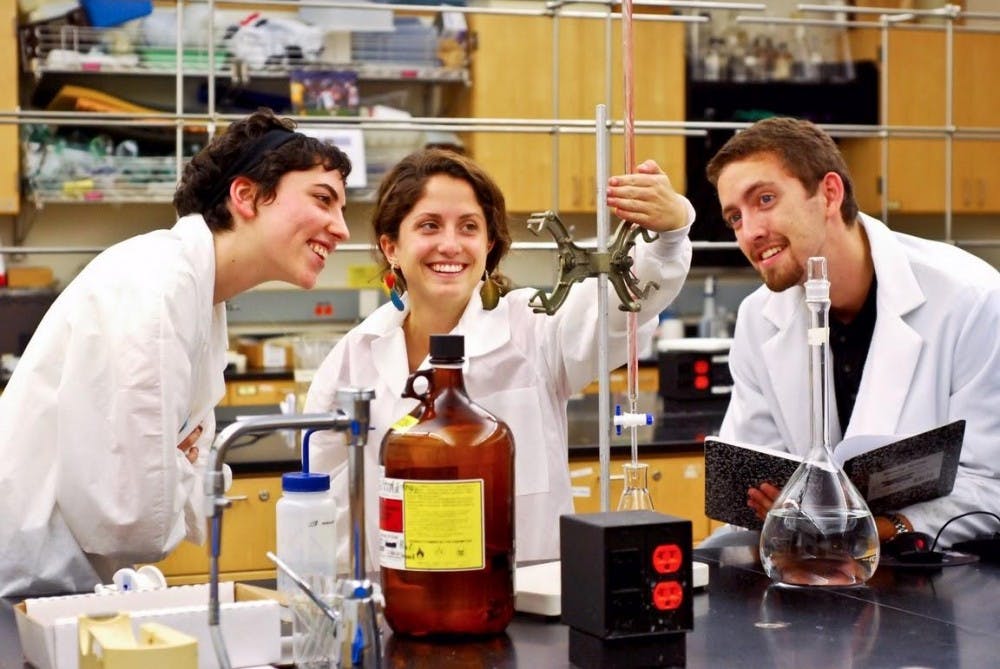Club helps UP move towards a more sustainable campus through fuel conversion
(Jackie Jeffers -- The Beacon)
By Rachel McIntosh Staff Writer mcintosh14@up.edu
The Biodiesel Club is turning rice oil into fuel to create a more sustainable future at the University of Portland.
The club uses the rice oil waste from The Commons, which the University would otherwise pay an outside company – such as Oregon Waste – to haul away, and converts it into biodiesel for various uses on campus. For example, Physical Plant would benefit from the converted oil by supplying its mowers with the biodiesel.
"Our goal is to convert the waste oil into biodiesel as fast as they create the waste oil," vice president and senior Mia Hart said. "So essentially, they wouldn't have to pay anyone to take the waste oil. Also, if we are giving it to Physical Plant and mixing it with their diesel, then they don't have to buy as much."
Patrick Manhard, a 2007 UP alumnus, Raymond Bard, a chemistry professor, and Steven Kolmes, an environmental science professor, were the first to begin work on the project in 2006.
Kolmes worked on getting the processor functioning while Manhard and Bard worked on the transportation and conversion of the oil. They successfully completed the first batch of biodiesel fuel in 2007.
"Re-use is a major step toward environmental sustainability," Kolmes said. "It is also a wonderful opportunity for students to see the process in real life – to be able to work with a concept hands-on."
Since Manhard graduated, however, there has been a lack of student participation with the conversion process. Kevin Cantrell, a chemistry professor, and Bard decided to be the advisers for the club and jumpstart the program once again – establishing a club that would help students become aware of the goals for a sustainable campus as well as increase the number of participants in the process.
"We are hoping by the end of the semester we should have everything taken care of," Bard said. "We just need to get more students involved so we can partition the time requirements."
The Biodiesel Club's goal is to raise awareness of the eco-friendly and money-saving qualities of biodiesel, and to demonstrate that anyone can get involved in the process, no matter his or her experience level, according to Hart.
"In the beginning, we really had no knowledge of the process, so we started out small in the lab mastering the concepts and doing some research," Dan Browne, fifth-year senior and club president, said. "Then we made a small batch to get the concept down but then the semester was over."
Currently, the club has 25 active members, but they would like to gain more so they can have someone available to work on the oil conversions every week. They would like to be able to create a consistent 20 gallons of biodiesel every week.
"The processor has been here for a while, but it has been underutilized because of lack of manpower and time," Cantrell said. "That is why the club is such a good thing to keep it moving forward."
According to Browne, he is concerned that a lack of familiarity with biodiesel may prevent many students from getting involved. However, Browne says there is a role for everyone in the process.
"It's very user friendly," Browne said. "We would really love to have people come out and learn about it because there are so many aspects of biodiesel that you can learn by participating. It is all about what you want to get out of it and what you want to make of it."








